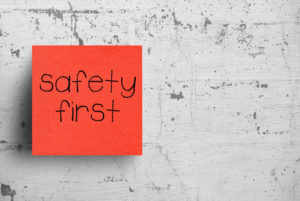 In most cases, your home’s HVAC system is nicely tucked away and we seldom — if ever — have cause to encounter any threats to our safety from it, especially if it is regularly serviced and maintained. But there are some conditions under which your HVAC system and its parts may pose a hazard to the occupants of your home. Here’s a rundown of HVAC safety hazards to watch out for.
In most cases, your home’s HVAC system is nicely tucked away and we seldom — if ever — have cause to encounter any threats to our safety from it, especially if it is regularly serviced and maintained. But there are some conditions under which your HVAC system and its parts may pose a hazard to the occupants of your home. Here’s a rundown of HVAC safety hazards to watch out for.
HVAC Hazards
- Carbon monoxide. If your HVAC system works by internal combustion and is powered by fuel, then it can leak deadly carbon monoxide. The most likely spot for a CO leak is the heat exchanger, which is part of the furnace. This part can develop minute cracks over time from expanding and contracting as it heats up. CO can leak out and cause sickness, particularly to the young, the elderly, and those with compromised immune systems. Leaks can also occur from a damaged flue pipe or chimney.
- Electrical shock. There are several different types of thermostats, but yours may be wired into the main electrical system. Wires can become frayed or disconnected. Whenever you attempt to reattach or replace them, make sure you turn off the electricity on the breaker to that part of the house.
- Refrigerant burn. Refrigerant “burns” are not really chemical burns but frostbite. In most cases, they hurt but heal quickly. However, anyone who handles refrigerant is legally required to have a license. It may be tempting, especially if you have some of that expensive R-22 sitting around, to DIY, but it’s always better to call a licensed professional to recharge your air conditioner. Plus, there’s usually a reason why your refrigerant is low — like a leak — and you need to have it fixed.
- Fire hazards. When gas pressure is too high, the heat exchanger may heat up too much, causing damage and fire hazards. Loose gas connections may also cause furnace fires, while fires may also occur when a homeowner stores boxes and flammable items too near the furnace.
To learn more about HVAC safety hazards, contact Hansberger Refrigeration and Electric Company of Yuma.

